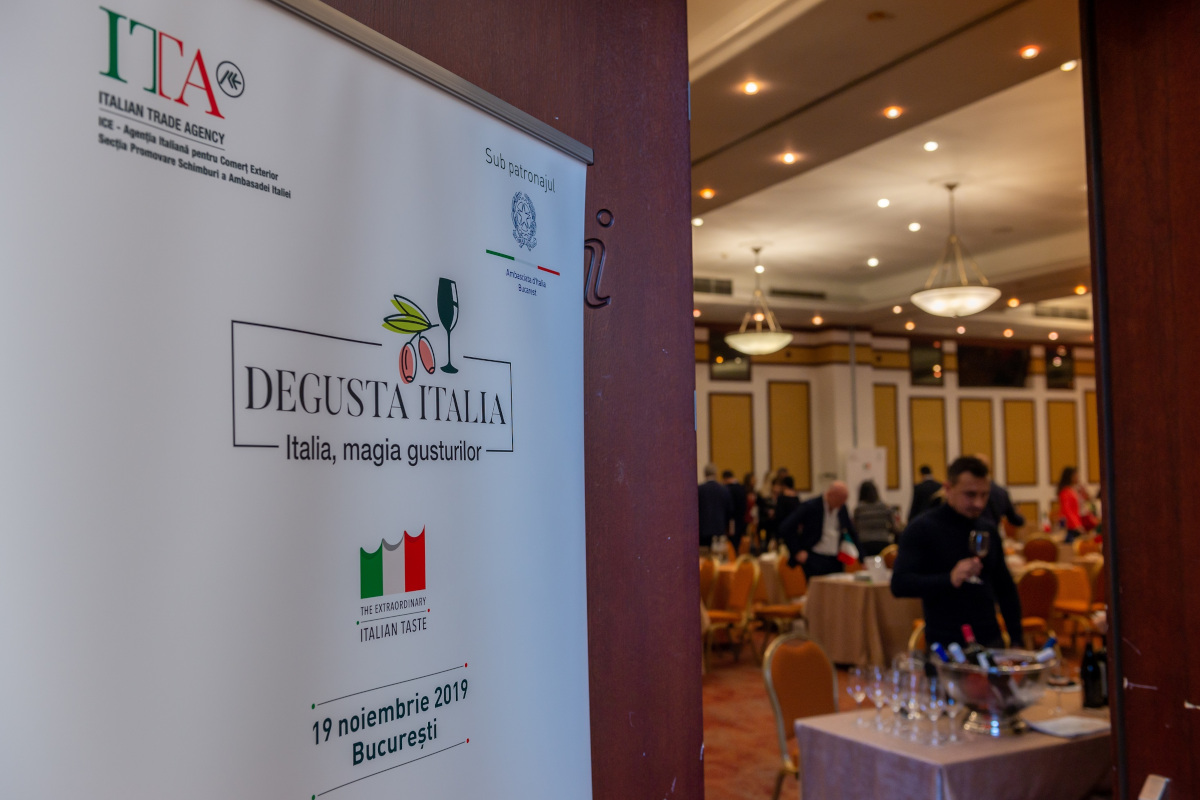
Romania comes in 7th place in Europe for the dimensions of the area dedicated to agriculture, after Spain, France, UK, Germany, Italy, and Poland. It can also boast the 5th place as for arable land, after Spain, France, Germany and Poland. Moreover, it is the second top market in Central-Eastern Europe with 19.2 million inhabitants.
Click here to discover the authentic Italian food and beverage products on Italianfood.net platform
The most important sectors of the Romanian food chain are the milling and baking industry, meat, olive oil, and dairy. Within Europe, Romania is among the top producer countries of edible oils. Despite its high production potential, the Romanian agri-food system has not yet been able to meet the domestic demand for agricultural products. That is why the country is still a net F&B importer and therefore a promising market for the development of Italian food exports.
FOOD ECONOMY: ROMANIA BY THE NUMBERS
Romania’s GDP has shown a constant, high growth rates in recent years. However, as a result of the current health emergency the Romanian Government estimates an overall fall of -2.2% (compared to +4.1% in 2019). The EU forecasts foresee a decrease of -6% in 2020, followed by a recovery in 2021 (+4.2%). Romania ranks 32nd in the European per capita average purchasing power ranking with 5,881 euros, up 14% compared to 2018. Bucharest is at the top of the ranking, with 10,452 euros.
The Italian food & beverage is enjoying a positive image linked to high-quality in Romania. According to the Italian Trade Agency the main outlet channels are Italian and international restaurants, frequented by the Italian community (throughout the country there are almost 19 thousand active Italian companies) and local buyers with strong purchasing power, mainly concentrated in major urban centers.
THE CENTRAL ROLE OF ITALY AMONG SUPPLIER COUNTRIES
Total Romanian imports of agricultural and food products reached a value of 8,899 million euros in 2019, growing by +4.8% compared to 2018. Among the imported products we find cereal-based preparations, various food preparations, fruit and vegetables, and meat and offal. In 2019 Italy was the 4th largest supplier of agri-food products in Romania, for a value of 389 million euros and a market share of 7.2%, after Germany (19.1%), Poland (13.1%), and Hungary (12.7%). The pandemic emergency effects are pushing sales of Italian pasta, coffee, and cold cuts.
The current year started well, and the ‘panic buying’ in March has fueled exports of Italian food products, growing by +16.7% in January-March compared to 2019. Some food categories recorded a strong growth: pasta (+72.9%), coffee and tea (+54.1%), meat products (+45.1%), fish and canned fish (+24.7%), peeled tomatoes (+43.8%), olive oil (+26.4%), bakery and flour products (+28.6%), still wines (+29.3%), and sparkling wines (+45.8%). Generally speaking, the most imported Italian food products are fruit and vegetables, meat, confectionery, coffee, oil, fish, citrus fruit juices, rice, and wines.
THE IMPORTANCE OF LARGE-SCALE DISTRIBUTION
The most important distribution channel for FMCG products in Romania is large-scale retail, which has developed considerably in recent years: the main chains have exceeded 3,000 points of sale. It is also estimated that groceries and discount stores will have an increasing development in the coming years, as well as with e-commerce which has had a strong surge in recent times due to the coronavirus health emergency. The main distribution players operating in Romania come from abroad: Mega Image of the Belgian group Delhaize, Profi, Lidl, Carrefour, Penny Market, Kaufland, Metro Cash&Carry, Auchan, and Selgros Cora.
EVENTS AND PERSPECTIVES
In recent years there has been a growing trend towards ‘premiumisation’ and diversification within the supply chain of agri-food products, together with the growth of average consumers’ incomes. Despite the slowdown due to the coronavirus pandemic, the potential of Italian food and beverage remains high.
In the last five years, in addition to many incoming missions and promotional events organized in Italy involving 140 Romanian and Moldovan operators, the Italian Trade Agency’s office in Bucharest has also organized eight commercial events for the promotion of authentic food products addressed to 136 Italian companies, which had the opportunity to enter the Romanian market and directly test the operators’ interest in their products.

